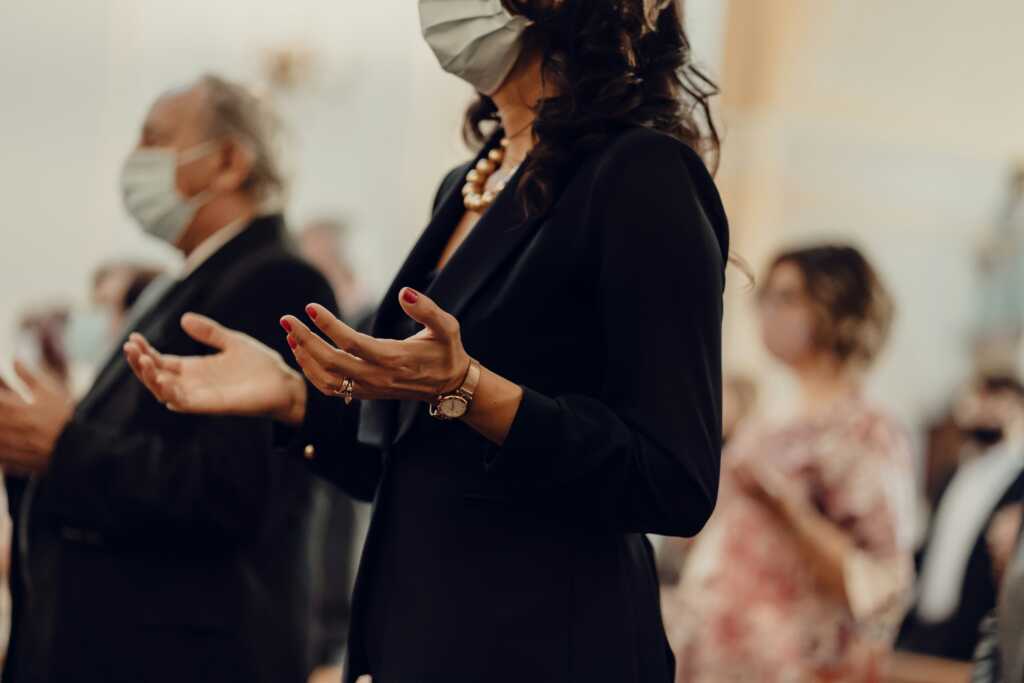The U.S. Supreme Court rejected a Colorado church’s request for protection from future pandemic-related restrictions, should the country find itself in a situation à la the COVID-19 outbreak.
During the pandemic, many churches across the U.S. were forced by federal, state, and local governments to close their doors to worshippers. Many congregations, including at least five in California, were ultimately awarded six-figure settlements for the restrictions that unjustly hampered church worship services while stores, for example, were permitted to remain open.
Listen to the latest episode of “Quick Start” 👇
Nevertheless, on Tuesday, the high court denied a petition of certiorari in the case of Grace Bible Fellowship et al. v. Jared Polis, governor of Colorado, et al. The justices’ refusal to hear the case leaves in place an earlier appeals court ruling favoring the Democrat governor.
The Brighton church — then known as Community Baptist Church before disassociating from the Southern Baptist Convention — was eventually granted a preliminary injunction in 2020, preventing the government from instituting some of the lockdown measures that were impacting churches in the area, according to its legal filing with the Supreme Court.
Grace Bible Fellowship later amended its legal complaint over the Colorado Disaster Emergency Act. The congregation, led by Pastor Joey Rhoads, argued the CDEA could be used again in the future to impose unconstitutional restrictions at the hands of the government.
CBN News has reached out to Grace Bible Fellowship for comment.
As the case wore on, the state of Colorado began lifting its COVID-related restrictions, resulting in U.S. District Judge Daniel D. Domenico deciding in March 2023 that the church didn’t have a valid case.
The judge asserted it is “implausible” to think the government would impose similar restrictions in the future. He did, however, express concern about some state public health laws.
“The presence on the state’s books of statutes that grant broad authority to the governor and state bureaucrats to order extraordinary limits on the freedoms of its citizens in an emergency is worth pondering,” he conceded, according to Colorado Politics. “That these statutes have been used in the recent past to adopt public-health orders that likely discriminated against religious activity is troubling.”
Domenico continued, “That the state at one point argued that the federal courts owe near-total deference to its determinations as to what extraordinary measures are warranted, and what counts as emergency that justifies such measures, is even more [troubling].”
A three-judge panel for the U.S. Court of Appeals for the 10th Circuit decided against the church unanimously in March, stating the plaintiffs “fail to demonstrate the injury required for constitutional standing as to most of their claims.”
The decision, authored by Circuit Judge Nancy Moritz, argued the church’s “claims are not justiciable because plaintiffs fail to show the requisite injury for Article III standing.”
They further ruled that, because the church was granted an injunction in 2020 against state restrictions, the plaintiff’s complaints against the CDEA were moot.
“As for plaintiffs’ reasserted free-exercise challenges to the CDEA, their as-applied claim is moot, and they fail to state a facial claim,” wrote Moritz. “We thus affirm the district court’s order dismissing plaintiffs’ amended complaint.”
***As the number of voices facing big-tech censorship continues to grow, please sign up for Faithwire’s daily newsletter and download the CBN News app, developed by our parent company, to stay up-to-date with the latest news from a distinctly Christian perspective.***



